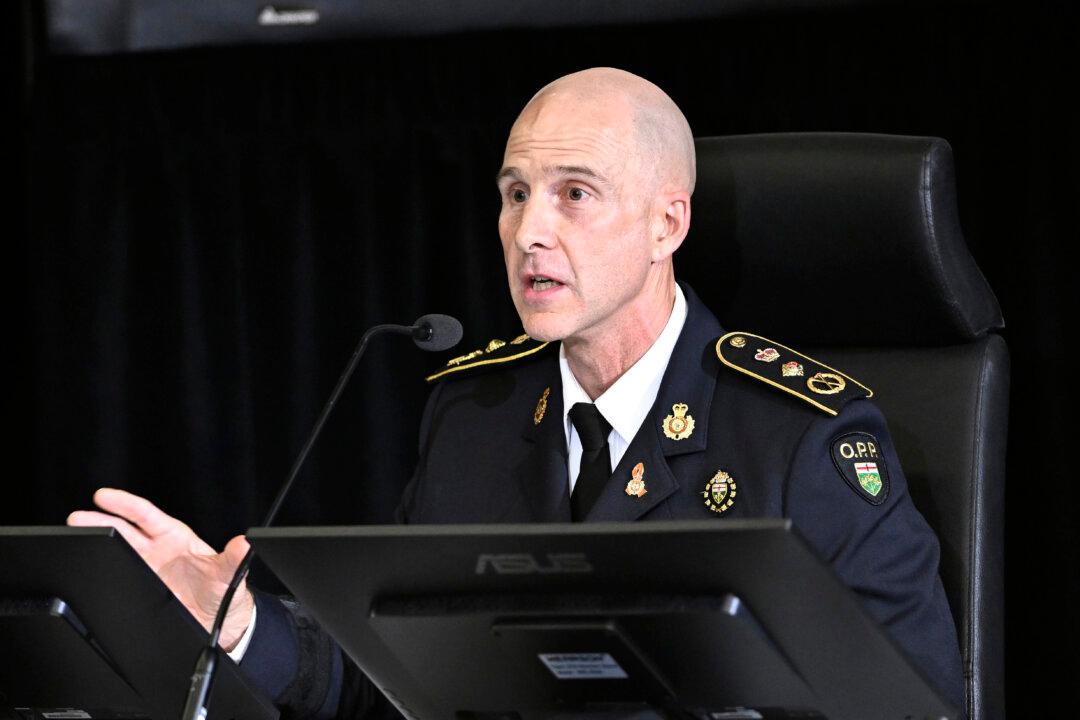Ontario Provincial Police (OPP) Commissioner Thomas Carrique said he shares the view his counterpart at the RCMP expressed about not all available tools having been exhausted before the Emergencies Act was invoked.
While testifying before the Public Order Emergency Commission on Oct. 27, Carrique was asked what he thought about RCMP Commissioner Brenda Lucki’s stance on the invocation of the act.





